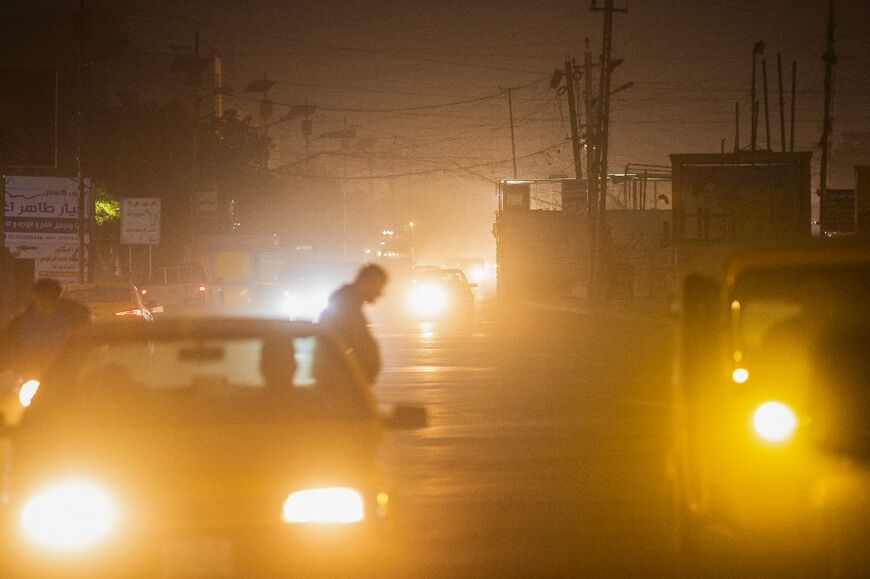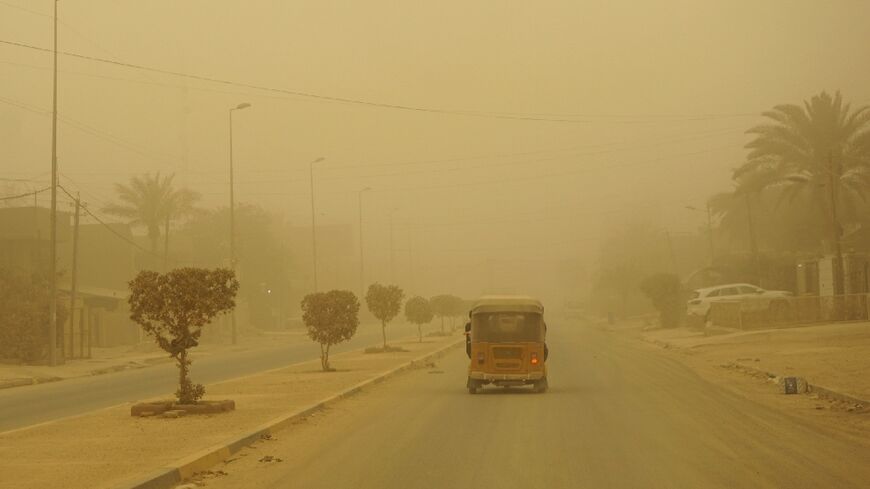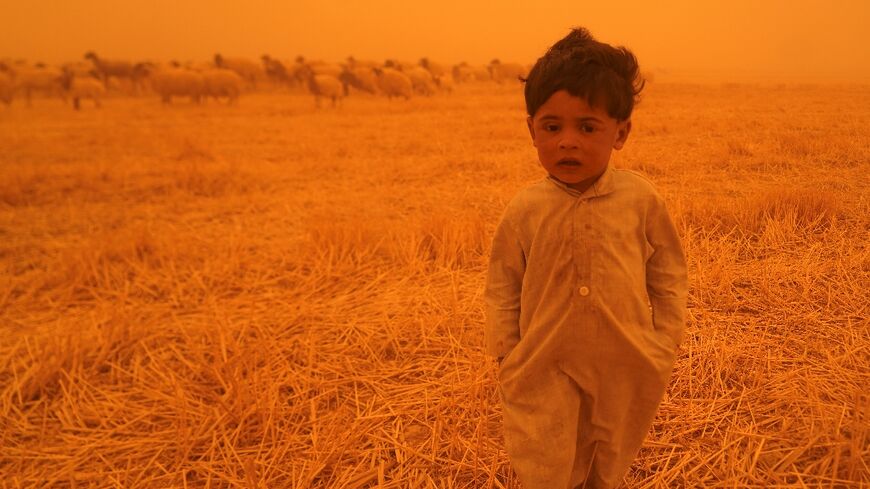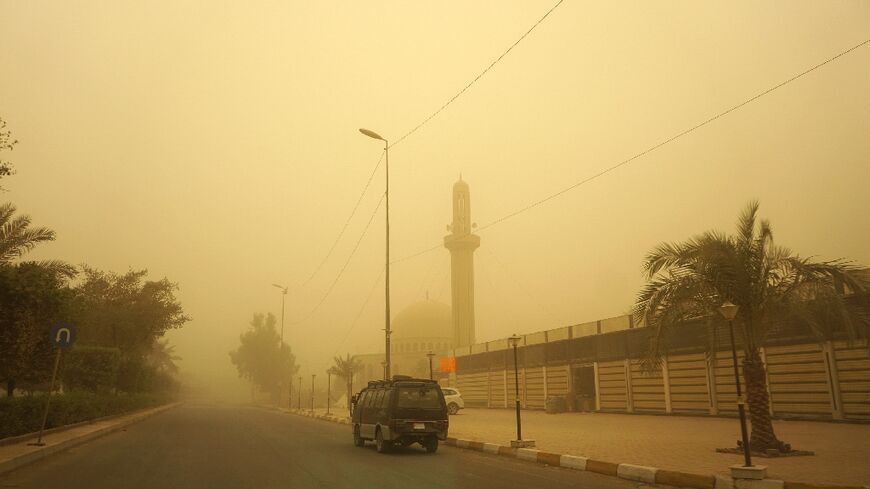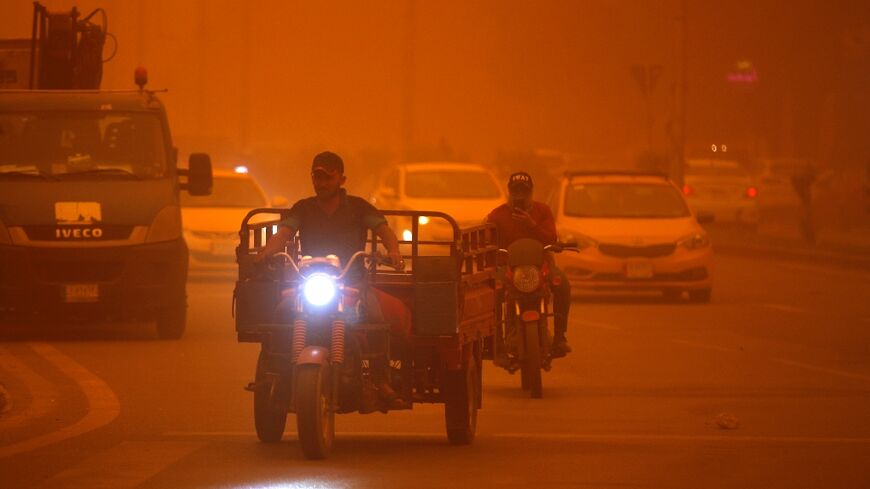Iraq's first sandstorm of the year blankets Baghdad
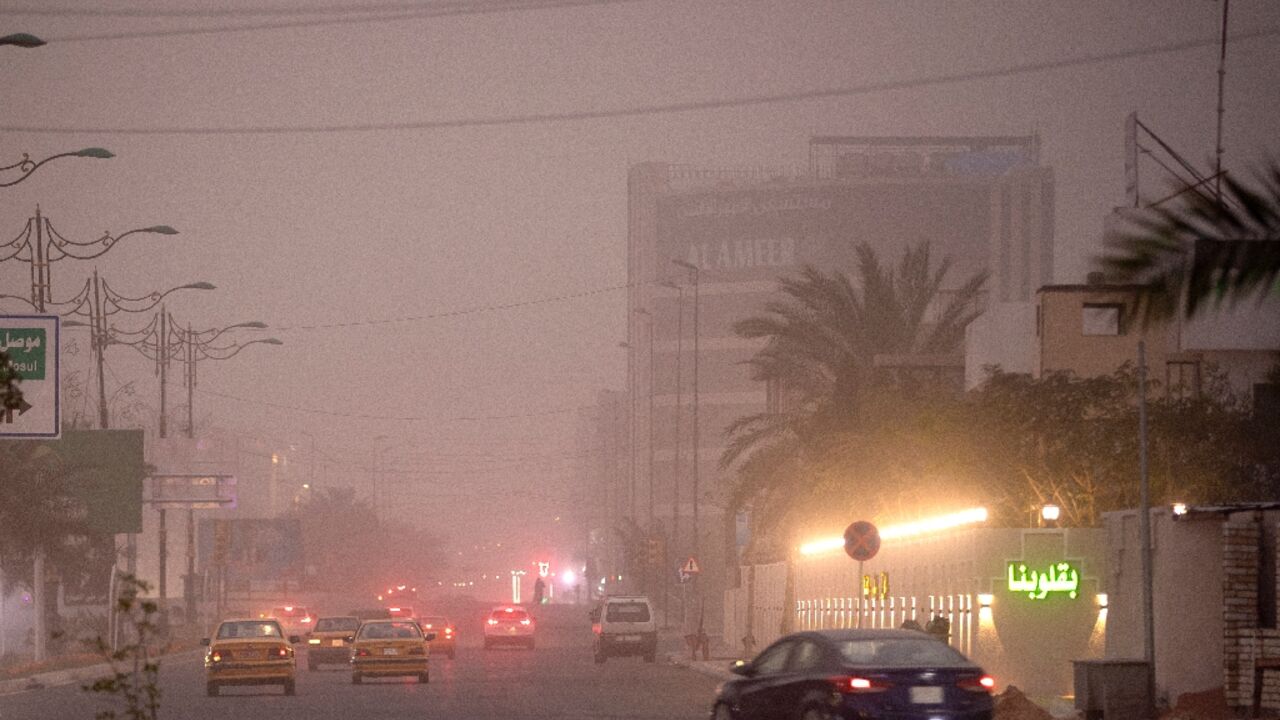
A sandstorm enveloped central Iraq, including Baghdad, on Friday, the first such weather event to hit the arid country this year.
In 2022, Iraq experienced more than a dozen sandstorms, an unprecedented number that was attributed to desertification.
Iraqis who ventured outside on Friday afternoon were greeted with the increasingly familiar ochre sky and unbreathable air typical of sandstorms, with AFP journalists reporting greatly reduced visibility and a film of dust covering cars and houses.
Driven by westerly winds, the storm moved from Al-Anbar province before reaching Baghdad and Salaheddin province by late Friday.
Local authorities were unable to provide figures on the number of people so far requiring medical treatment for respiratory problems related to the storm.
Orders were issued for "health facilities to be on alert", Health Minister Saleh al-Hasnawi said in a statement.
Transport ministry spokesman Maythem al-Safi told AFP that flights into and out of Iraq "are continuing normally".
Last year's sandstorms caused disruption to air traffic and frequent closures of schools and offices. Thousands of people were admitted to hospital with respiratory problems.
The United Nations places Iraq among the five countries in the world most vulnerable to the impacts of climate change.
The environment ministry has warned the country can expect to experience "272 dust days" per year, rising to more than 300 by 2050.
Amer al-Jabri, a spokesman for Iraq's meteorological department, said the storms are a result of desertification caused by "drought, lack of rain (and the) drying up of rivers".
In a bid to mitigate the process, Prime Minister Mohammed Shia al-Sudani unveiled a campaign in mid-March to plant five million trees across Iraq.


